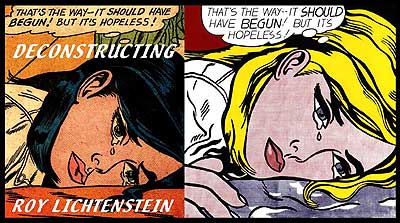From "Teachers defy list of untouchable authors" and "Teachers fight back over classics"...
Much controversy in Britain (and the blogosphere) as some middle school teachers object to teaching works by classic authors like George Eliot and Charles Dickens, claiming that those authors "are too difficult for many pupils aged 11 to 14 and could put them off great writers for life."
Apparently, Britain's Education Secretary, Alan Johnson, roiled the English teachers of the commonwealth by requesting that the new curriculum include a list of suggested authors:
Jane Austen, Elizabeth Barrett Browning, William Blake, Charlotte Bronte, Robert Burns, Geoffrey Chaucer, Kate Chopin, John Clare, Samuel Taylor Coleridge, Charles Dickens, Arthur Conan Doyle, George Eliot, Thomas Gray, Thomas Hardy, John Keats, John Masefield, Alexander Pope, Christina Rossetti, William Shakespeare (sonnets), Mary Shelley, Robert Louis Stevenson, Jonathan Swift, Alfred Lord Tennyson, HG Wells, Oscar Wilde, Dorothy Wordsworth and William WordsworthBut the Qualifications and Curriculum Authority, apparently deeming the list too difficult, planned to bin it. In defense of the suggested authors, Johnson contended that
"There are certain untouchable elements of the secondary curriculum that all teenagers should learn for a classic, well-rounded British education....For example, it's vital that teachers instil a love of literature in young people and engage them with the best-loved writers from our history."The National Association for the Teaching of English disagreed with Johnson's statement, maintaining that "teaching texts of such linguistic complexity is completely counter-productive." And in a particularly sophisticated counter-argument, the NATE deemed Johnson "a bird brain."
Says NATE policy director, Ian McNeilly,
"The guy's a bird brain. If he wants to make an informed decision he can give me a ring. His decision is completely uninformed." While I can see both sides of this issue, I tend to agree with Johnson, primarily because of my personal experience in this area, I taught a 7th and 8th grade literature class using a curriculum I'd designed around "classic" authors, such as Swift, Twain, Stephen Crane, etc. To my great surprise, the work that students enjoyed the most was the most difficult one in the batch,
Gulliver's Travels. In fact, they enjoyed it so much that we ended up reading three parts of it, instead of just "A Voyage to Lilliput," the one section that I'd planned on reading. (The students actually
requested that we read more!)
However, it's not hard to imagine students feeling utterly stymied by
The Canterbury Tales or
Middlemarch. It seems like careful text selection would prove the real key to making classic authors accessible--and hopefully enjoyable!--to students.

